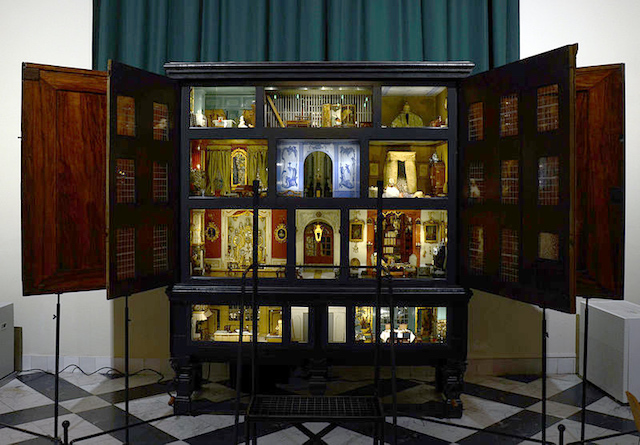I’ve always been everyone else’s memory.
First it was my mother. We’d get in the car to go someplace, and she’d say, “Remind me to stop at the dry cleaners on the way home to pick up Daddy’s suit jacket.”
Later on it was my husband: “Don’t let me forget that I have John’s little league game this afternoon.”
They’d ask me to remember for them because I had a terrific memory. Like an elephant, I never forgot. But at some point along the way, without quite knowing how I got there, I hit middle age and suddenly my memory wasn’t quite as good as it used to be.
I had tricks, like always storing things in the same place so I wouldn’t lose them. And yet, there I’d be, searching for my glasses (and if you wear glasses, you know just how frustrating it is to try to find them when you can’t even see them because you don’t have your glasses on in the first place).
It was upsetting. I realized there was satisfaction in serving as everyone’s memory. I didn’t want to lose my pride of place as everyone’s favorite memory bank. So I began to look for some kind of trick or method I might use to sharpen my powers of recall.
That’s when Google led me to the method of loci, a memory technique that goes all the way back to the ancient Greeks and Romans. If it’s that old and that effective, you might wonder why no one knows about it.
The truth is, the method of loci has been gaining favor with psychologists since the early 19th century.
The method of loci is simple enough. It involves imagining a building and placing memories into rooms in that building. By putting all related memories into a single building, you make it easy to retrieve those memories later.
The reason? You’ve created a concrete association for those memories in your mind—simply imagine the building in which you’ve placed those memories, and suddenly, you’ve found them. Easy peasy.
I was willing to give it a go.
So the next time I took off my glasses, I left them on the kitchen counter. Using the method of loci, I imagined a building, in this case a home. I pictured where the kitchen was in that home and imagined my glasses sitting on the counter in that imaginary kitchen.
I went about my tasks, straightening up the living room, answered some email messages, put in a load of laundry, then needed my glasses to watch the news. Now where did I put them?
I imagined my building, with its nice, neat kitchen, and sure enough, there on the imaginary kitchen counter were my imaginary glasses. “Ah-ha!” I thought. “My glasses are on the kitchen counter!
And there they were—right where I’d imagined them in my dream home, and actually there on my non-virtual kitchen counter in my real home. Voilà!
I was completely sold. After that, whenever someone asked me to be their memory, I’d say, “Sure thing!” I’d then use the method of loci to remember whatever it was.
It always worked.
I thought of all this when I happened upon an interesting article about clinical depression. It seems that scientists have known for years that revisiting positive memories can relieve the symptoms of depression. The problem is that depression has an ill effect on memory, making it difficult to remember those happy memories of the past—kind of like finding your glasses without your glasses.
Then, Tim Dalgleish, a researcher at the United Kingdom’s Medical Research Council in the Cognition and Brain Sciences Unit had an idea: Why not try teaching people with depression the method of loci? They could fill the rooms of an imaginary building with happy memories to retrieve whenever some relief was needed.
To that end, Dalgleish and his team of researchers asked depressed patients to think of 15 positive memories. One group of participants used the method of loci technique to generate associations for their memories, while a control group used a different memory strategy, grouping their memories based on how similar they were. After a practice session for each group, the participants were asked to share as many of their 15 positive memories as possible.
Both groups managed to recall most of their 15 memories. But that proved true only in the short term. As time went on, there was a marked difference in the ability of the two groups to remember. The participants were sent home to practice their memory techniques and use them to self-treat their depressed mind states. After a week, each participant received a phone call, out of the blue, from the researchers. During the phone call, the participants were asked to recall their memories once more.
Those participants who used the method of loci technique were much better than the control group participants at remembering their positive memories.
The upshot of this study? The method of loci technique can not only help you find your glasses or your missing car keys, but it can also help elevate your mood. It does this by helping you associate powerful positive memories with imagined physical objects or places.
You don’t have to be depressed to try the method of loci to put yourself in a positive frame of mind. I know because I tried it out when I dropped off my youngest child at summer camp last year. Just thinking about my empty summer nest filled me with gloom. So I walked through my method of loci house of happy memories and sure enough, found my spirits immediately lifted.
The method of loci really worked.
I realized I was onto something. The method of loci could help bolster self-confidence when we’re nervous about an exam, a blind date, or an important meeting at work, for example. You know how it is—if you’re feeling unsure or down on yourself, nothing comes out as it should.
Having a positive mental attitude, on the other hand, almost guarantees a stellar outcome for your efforts.
So, the next time we’re feeling stressed out or down on ourselves and our abilities, why not try the loci technique and walk through your self-created house of happy memories? It costs nothing, and we’ve already got everything we need to make it happen.
Try it with 15 positive memories—the birth of a child, your wedding, the moment you nabbed that dream job, the vacation to that perfect, white-sand beach. We can all come up with our own custom-tailored lists of times that made us truly happy.
With regular practice, you’ll soon discover the most awesome thing about method of loci: It can be used to help us remember anything at all, which is a really handy skill to own and use.
Need more help getting started? Watch this clip. You’ll soon discover the most awesome thing about method of loci and that is that it can be used to help you remember anything at all, which is a really handy skill to own and use.
~
Author: Varda Meyers Epstein
Image: Wikimedia, Johnny Silvercloud/Flickr
Editor: Callie Rushton


 Share on bsky
Share on bsky





Read 1 comment and reply